 >Home>
SEPKU News
>Home>
SEPKU News
On November 2, 2024, the Second Joint China-UK Expert Symposium on Sustainable Development and Decarbonisation, co-hosted by Peking University and the University of Strathclyde, officially opened at the School of Economics, Peking University. Key attendees included Professor David Hillier, Associate Principal and Executive Dean of the University of Strathclyde Business School, Professor Duncan Graham, Executive Deans of Faculty of Science, Professor Ian Rivers, Executive Deans of Faculty of Humanities and Social Sciences, and Stephen McArthur, Executive Deans of Faculty of Engineering, Tracy Morse, Professor of Environmental Health and Head of Strathclyde Centre for Sustainable Development, and Professor Dong Zhiyong, Vice President of Peking University and Dean of its School of Economics, along with Professors Qin Xuezheng and Xu Yunxiao from Peking University.
The symposium aimed to address major global challenges, such as climate change and economic slowdowns, while promoting deeper cooperation between China and the UK in transitioning to a green economy. Scholars from both countries engaged in in-depth discussions on topics including promoting regional sustainable development, decarbonizing power systems, and the role of economic and financial policies in sustainable development. Professor Qin Xuezheng hosted the opening ceremony.
In his opening speech, Professor Dong Zhiyong reviewed the achievements of the first Sino-UK Symposium on Sustainable Development and Decarbonization and highlighted the extensive collaboration between Peking University and the University of Strathclyde in sustainability. He emphasized the urgent need to address climate change and transition to a low-carbon economy, noting China’s commitment in its 14th Five-Year Plan to peak carbon emissions and achieve carbon neutrality. Dong stressed the importance of global cooperation and resource integration to tackle these challenges. He mentioned that the symposium serves as a platform for experts from various fields to share research and innovative solutions, fostering international collaboration and providing new opportunities for China-UK academic exchanges.
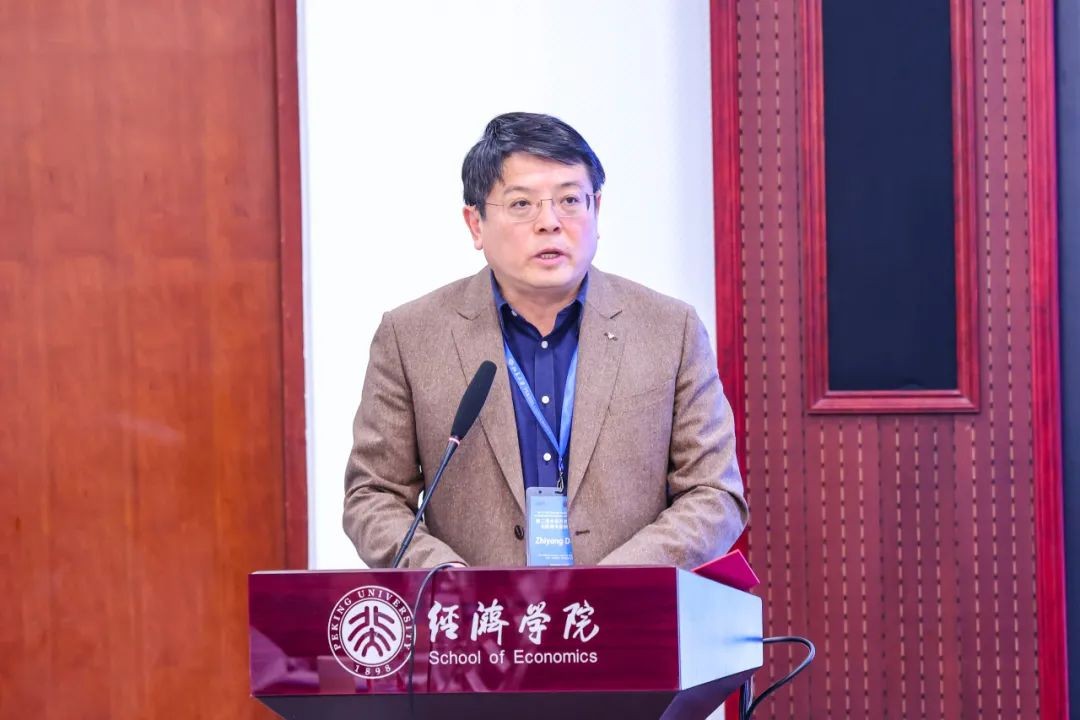
Dong Zhiyong delivering speech
Professor David Hillier, the Associate Principal and Executive Dean of the University of Strathclyde Business School, also delivered an opening speech. He expressed gratitude for Peking University’s warm reception and underlined the significance of the symposium in advancing academic cooperation between the two nations and supporting global sustainability goals. Hillier noted China’s rapid progress in renewable energy, especially in wind and solar power, reflecting its ambitions in tackling climate change. He highlighted the shared goals of carbon neutrality, with the UK targeting net-zero emissions by 2050 and China aiming to peak carbon emissions by 2030 and achieve neutrality by 2060. Hillier called for collective efforts in innovation and collaboration to accelerate the global low-carbon transition.
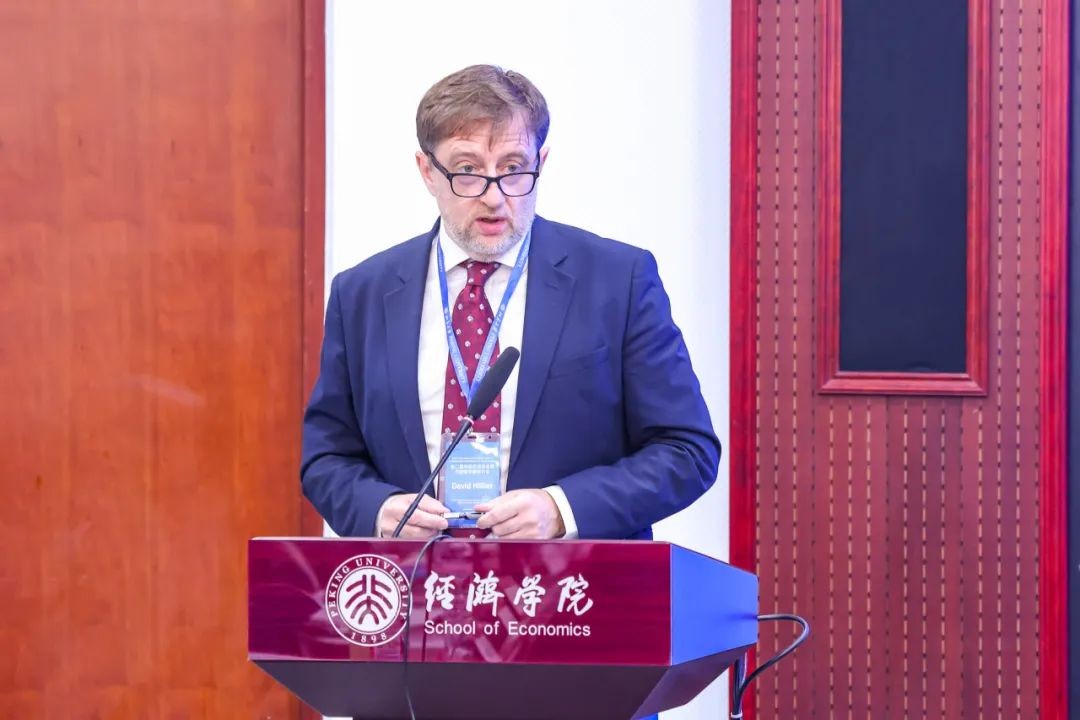
David Hillier delivering speech
Four Breakout Sessions
Breakout Session 1, themed “ Driving Regional Sustainability through Innovative Partnerships and Approaches - Beyond the Campus ”, explored how universities can play a pivotal role in regional sustainability through collaboration and innovation. Tracy Morse from Strathclyde highlighted the importance of integration of sustainability into higher education institutions, noting its ability to foster resource sharing, knowledge transfer, and technological collaboration. Duncan Graham emphasized the importance of universities in addressing real-world challenges and supporting green transformations through collaborative networks. Jia Ruo from Peking University discussed the impacts of climate change and the importance of data-driven risk management, while Han Ling presented on the topic regarding the inclusive waste recycling systems, showcasing how partnerships, economic incentives, and education can improve recycling rates in urban areas.
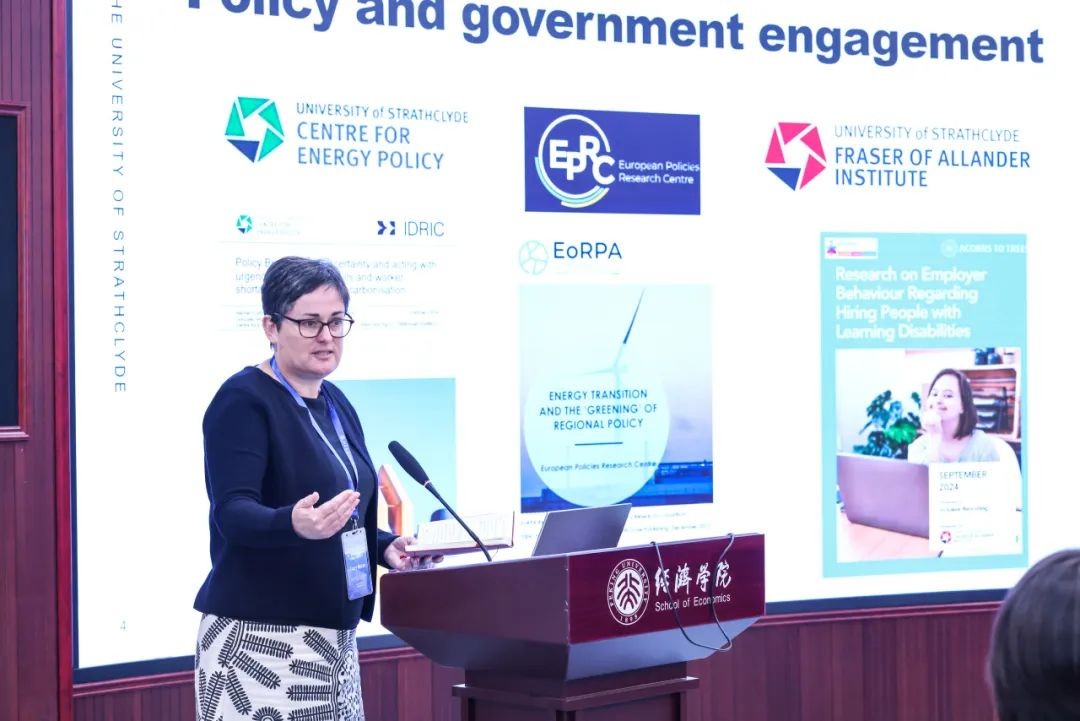
Tracy Morse delivering speech
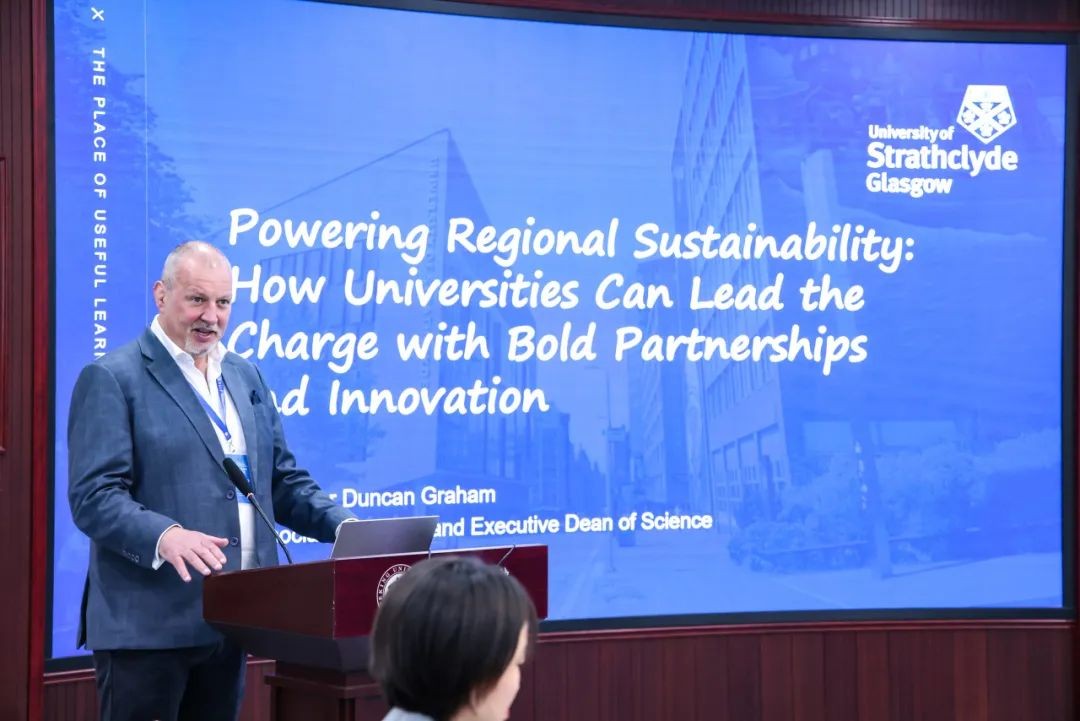
Duncan Graham delivering speech
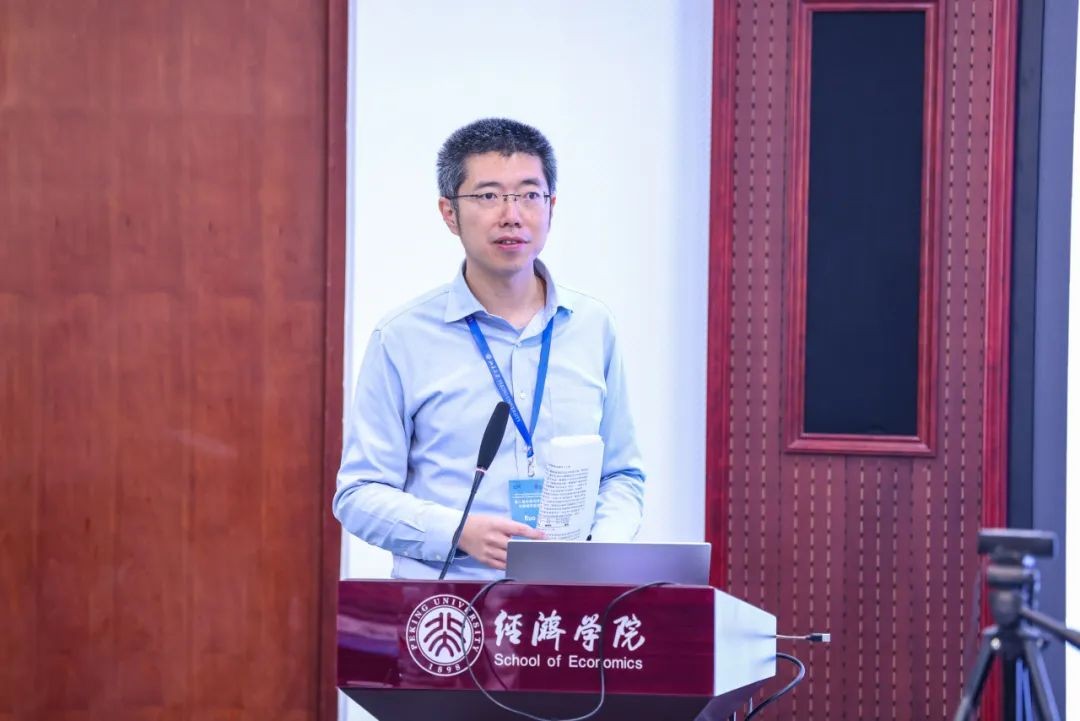
Jia Ruo delivering speech
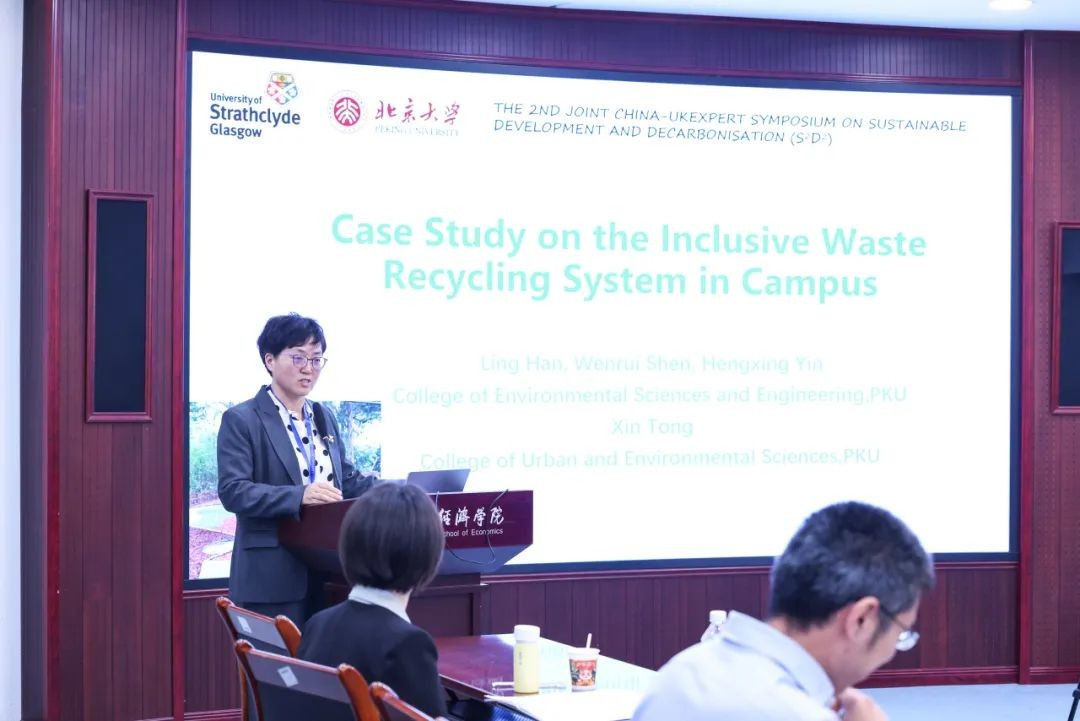
Han Ling delivering speech
Breakout Session 2, titled “ Transforming Energy Landscapes: Decarbonizing Electrical Power Systems for a Sustainable Future ”, focused on innovations in energy systems and the path toward a net-zero future. Campbell Booth from Strathclyde introduced the ENSIGN project, which was carried out by him and his team, aiming to improve the efficiency of energy management through digital twin technology. Hong Qiteng introduced innovations like SWU technology and digital twins for Distributed Energy Resources (DERs), supporting the UK’s net-zero goals. Dr. Wang Jianxiao from Peking University stressed the importance of data and AI in optimizing renewable energy systems, while Dr. Wang Yishen explored the use of AI and scientific computing to enhance power systems, offering insights into industry-level model development.
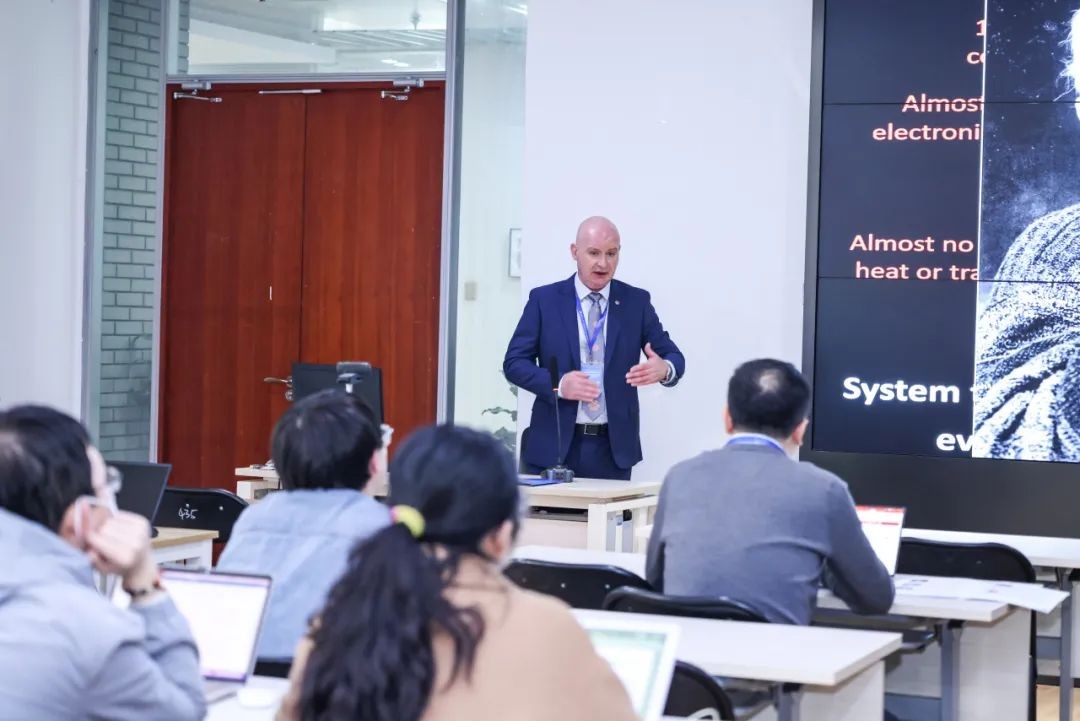
Campbell Booth delivering speech
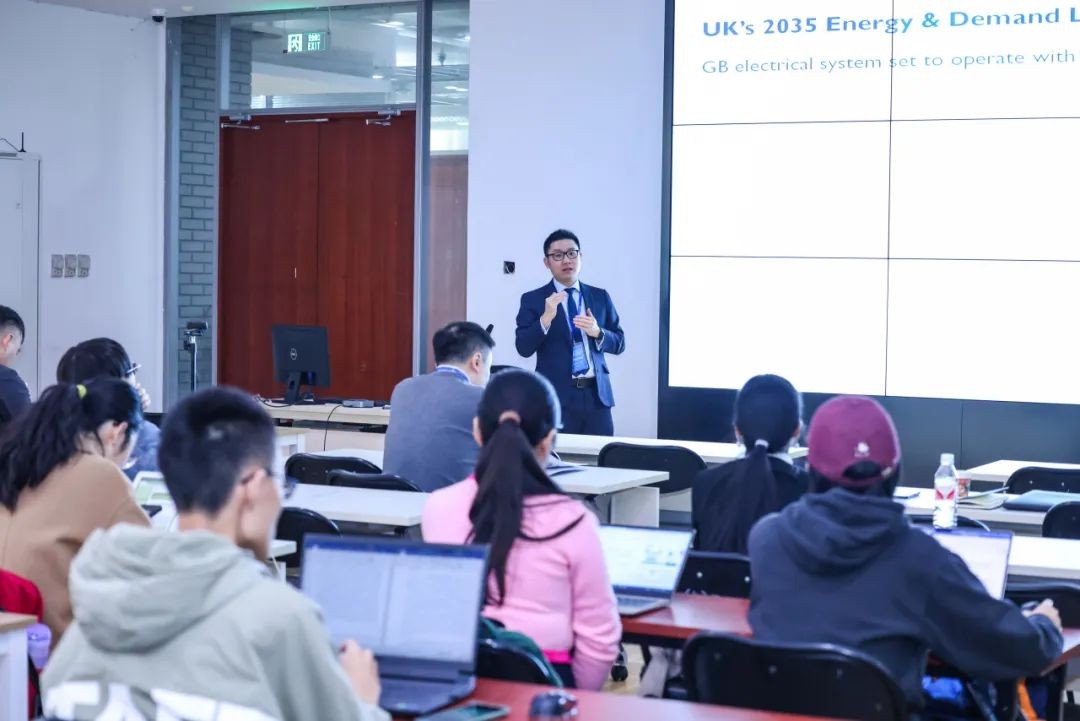
Hong Qiteng delivering speech
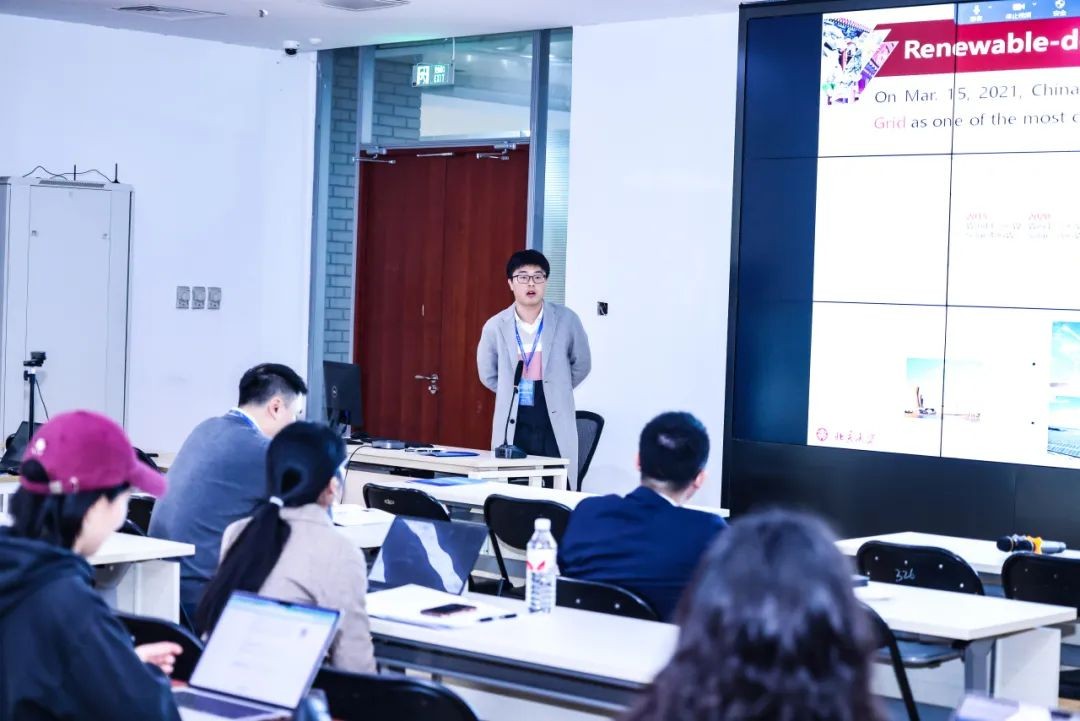
Wang Jianxiao delivering speech
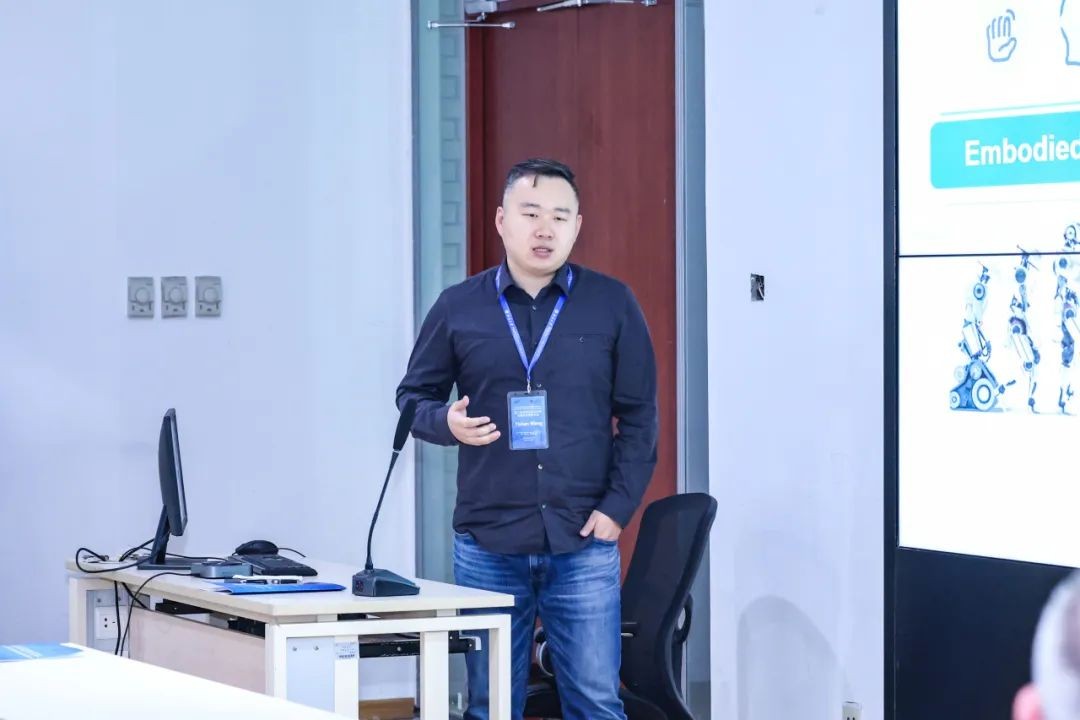
Wang Yishen delivering speech
Breakout Session 3 “ The Role of Economics and Financial Policies in Achieving Sustainable Development: Views from China and the UK ”, explored the intersection of finance, policy, and sustainability. Andrew Marshall discussed green finance’s role in tackling environmental change and promoting sustainability, while David Hillier emphasized international cooperation and the involvement of government, the business sector and the public in achieving sustainability. Shi Xinzheng from Peking University focused on the balance between economic growth and environmental protection in China, and Liang Yuanning presented China’s ecological restoration efforts over the past two decades, highlighting the importance of long-term planning for sustainability.
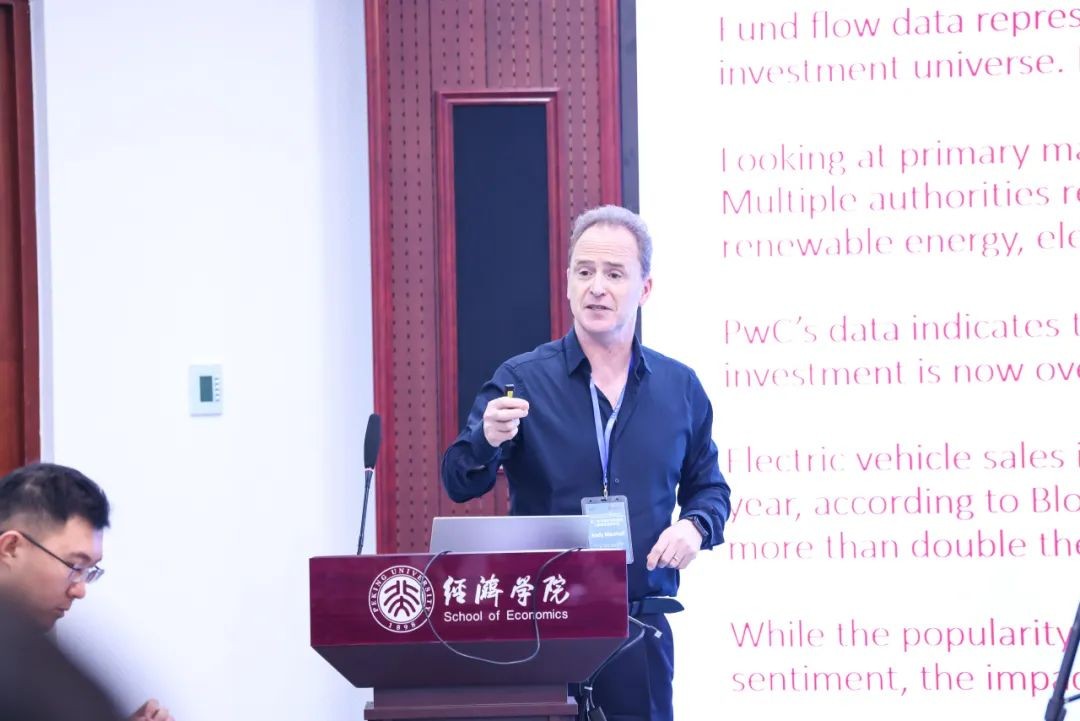
Andrew Marshall delivering speech
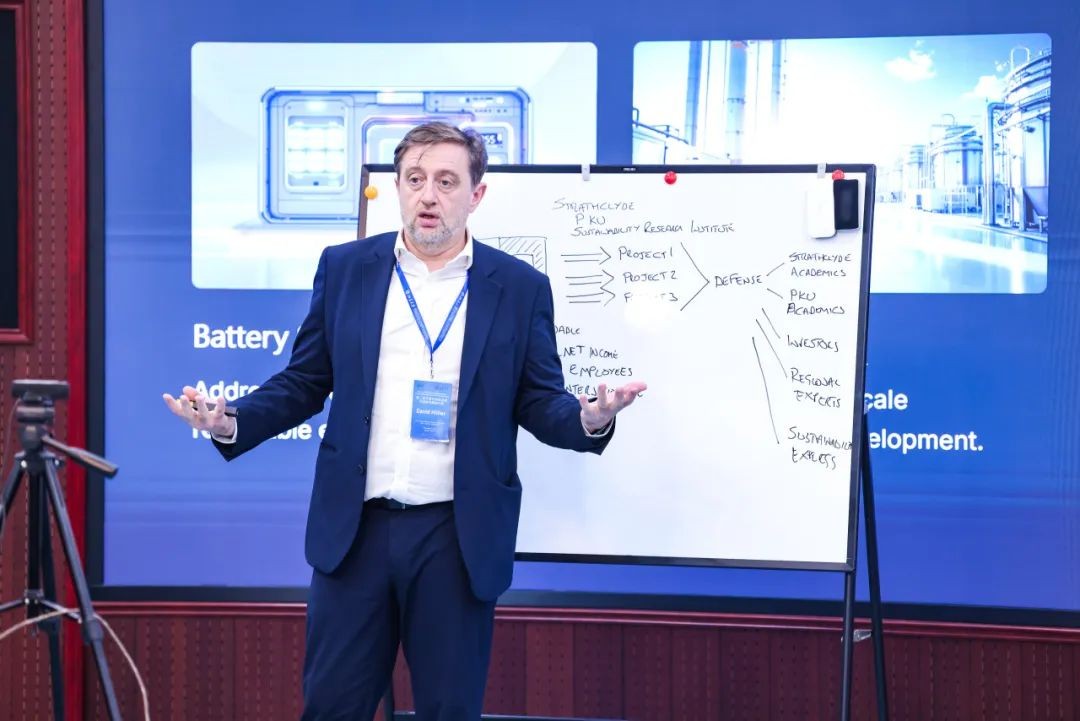
David Hillier delivering speech
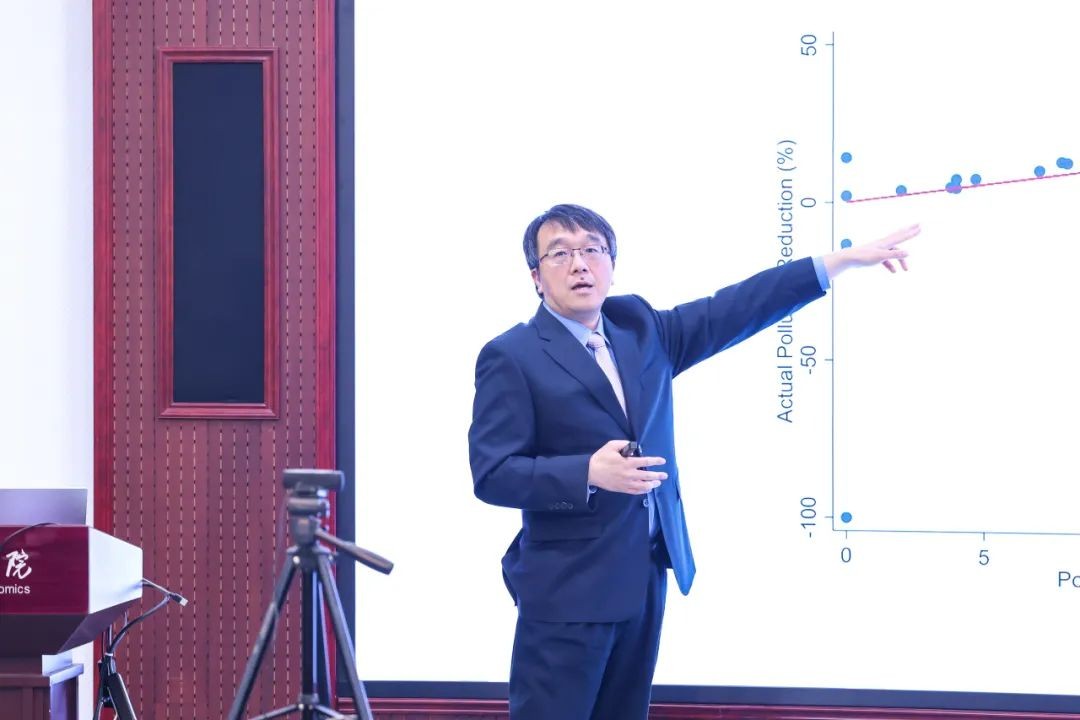
Shi Xinzheng delivering speech
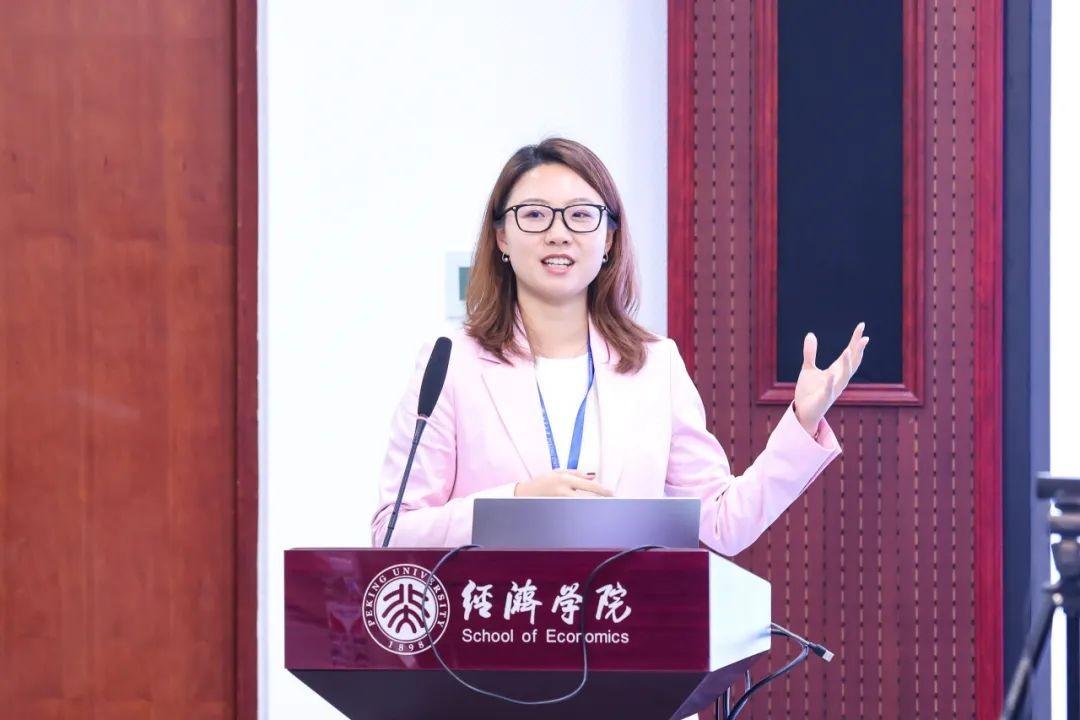
Liang Yuanning delivering speech
Breakout Session 4, titled “ Understanding Sustainable Futures ”, examined the interdisciplinary approach required to address global sustainability challenges. Tracy Morse from Strathclyde discussed the importance of aligning university curricula with sustainable development goals, equipping students with the necessary skills to tackle complex global issues such as environmental crises and social instability. Ian Rivers highlighted the role of the humanities and social sciences in sustainability research. Yuan Ye from Peking University discussed the negative environmental impact of Bitcoin mining, while Nian Yongwei presented the role of reciprocity and state capacity in pollution control efforts in China, offering insights into public-private cooperation in addressing environmental challenges.
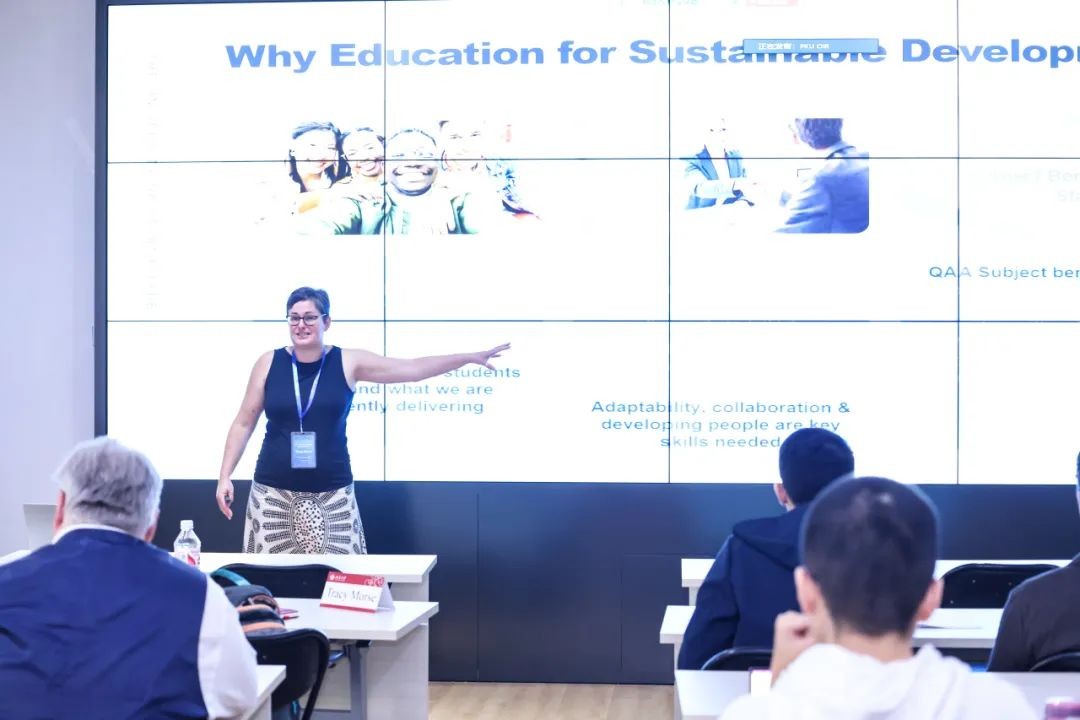
Tracy Morse delivering speech
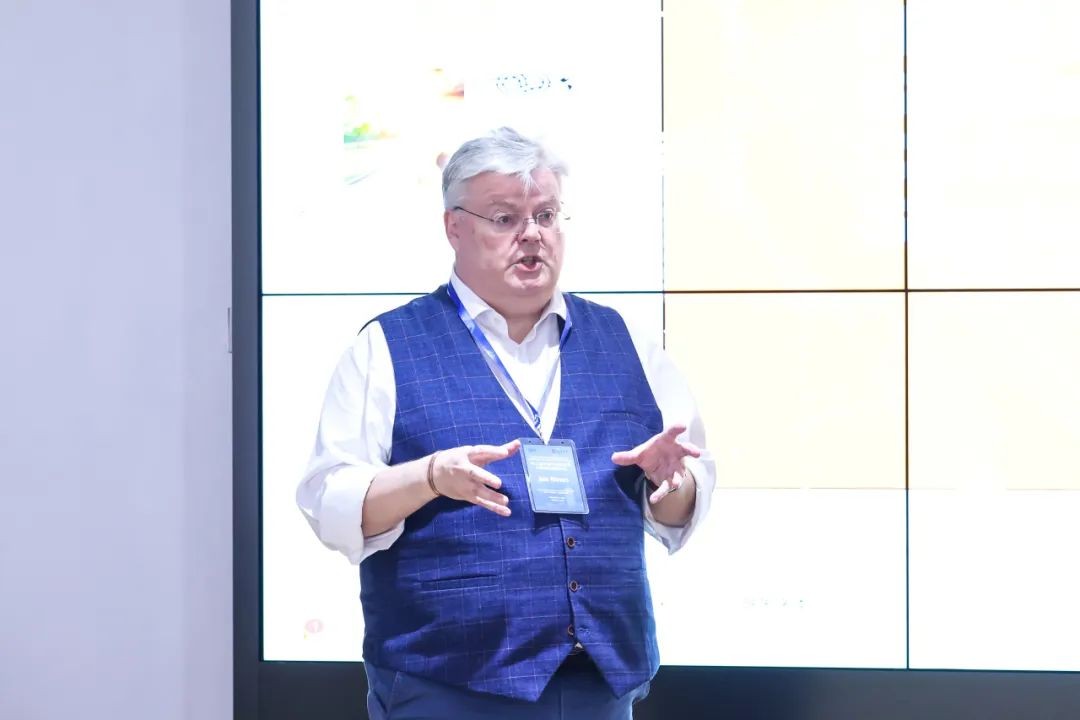
Ian Rivers delivering speech
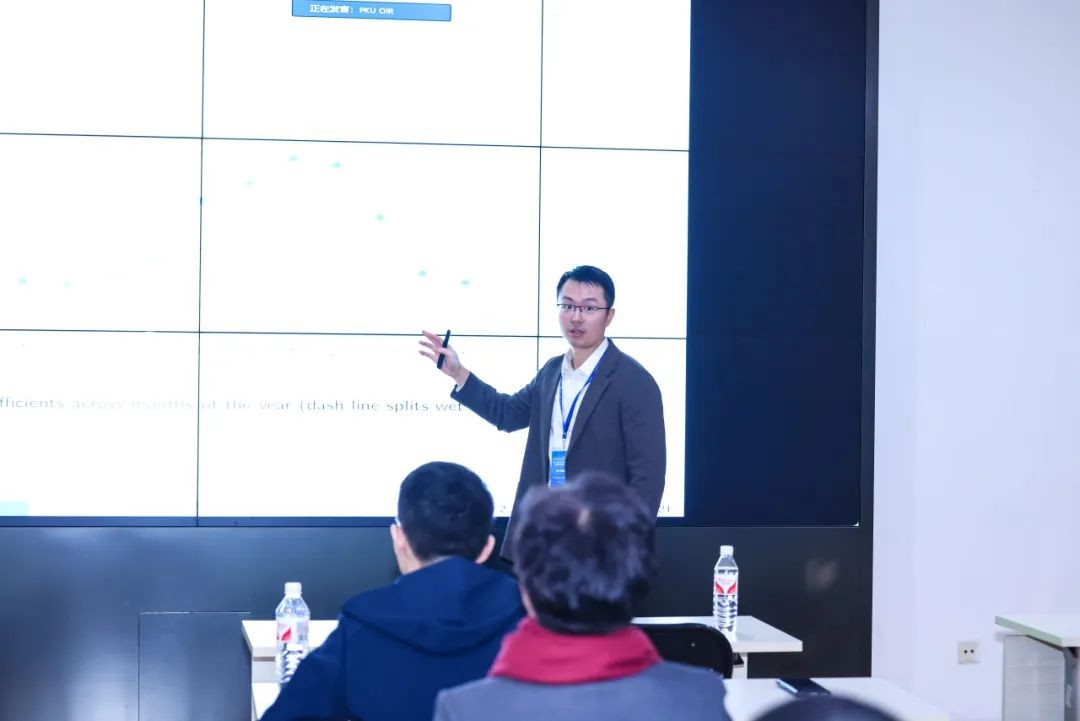
Yuan Ye delivering speech
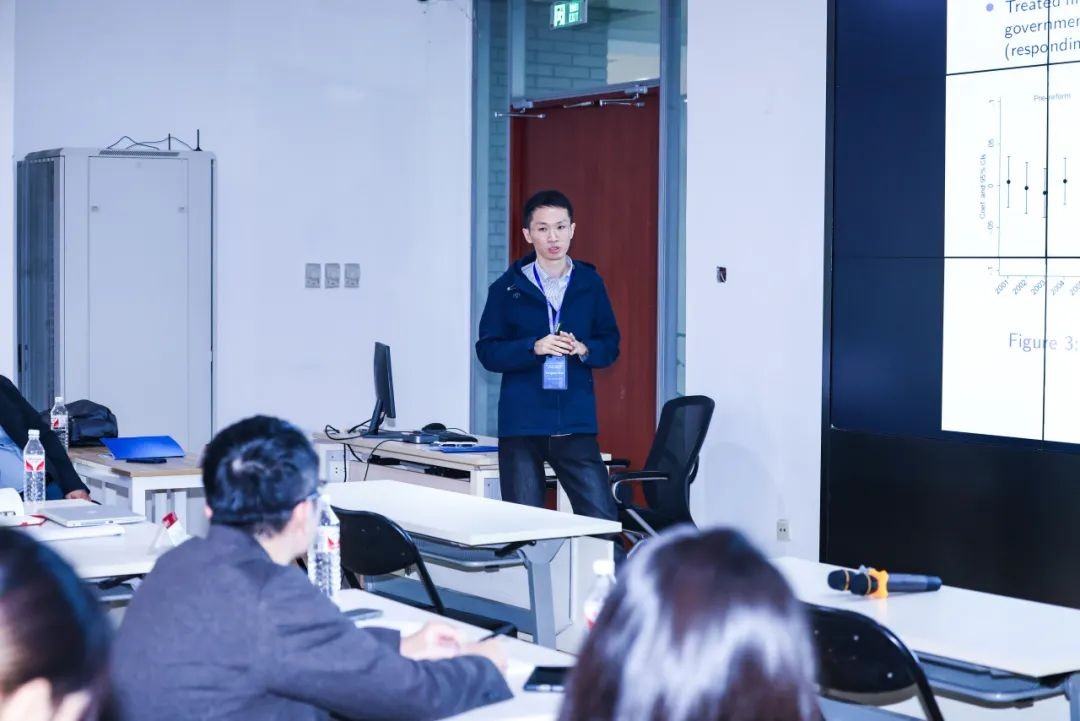
Nian Yongwei delivering speech
At the closing ceremony, Professor Qin Xuezheng expressed her gratitude to the guests and participants of the symposium and shared some of her reflections. He highlighted the broad societal and economic impacts of climate change, especially its influence on investors’ behavior. He noted the differing approaches of China’s government-led and the UK’s market-driven models for a low-carbon economy, but recognized both countries’ progress in emissions reduction. Professor Qin hoped for strengthened cooperation between the two nations, encouraging interdisciplinary collaboration and continued academic exchange. He concluded by wishing the symposium’s outcomes would drive further sustainable development research.
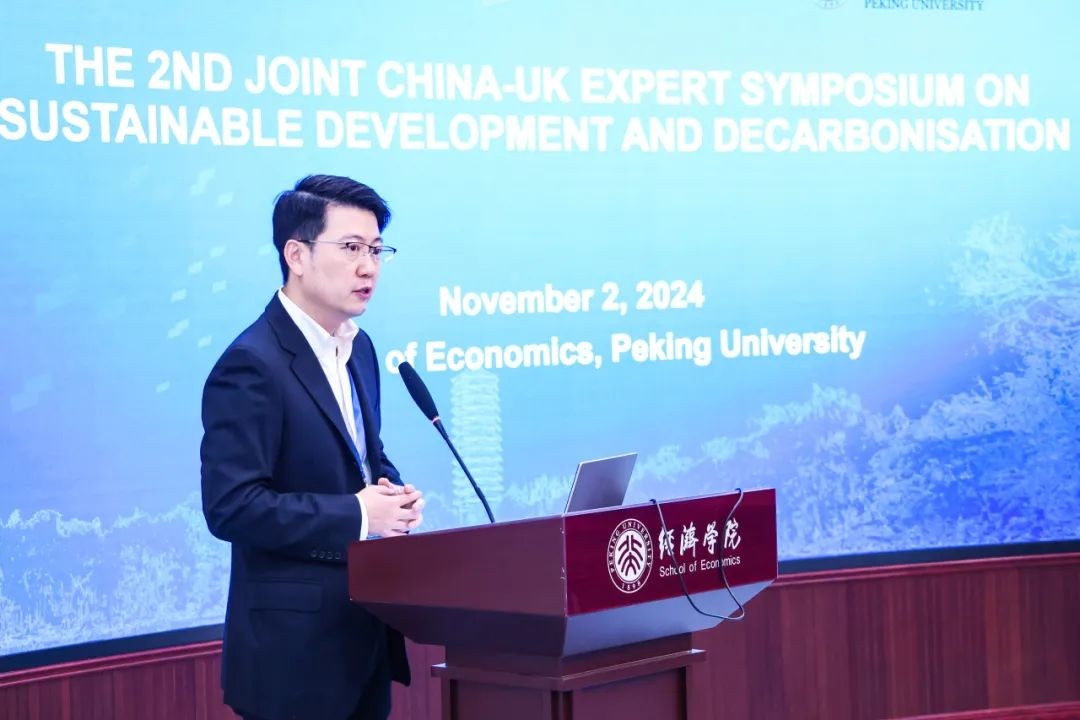
Qin Xuezheng delivering speech
Professor Stephen McArthur of Strathclyde University congratulated attendees on the symposium’s success, emphasizing the link between energy consumption and environmental pollution. He stressed the importance of interdisciplinary cooperation to address global challenges, particularly in climate change and public health, and reaffirmed Strathclyde’s commitment to advancing sustainable development with Peking University.
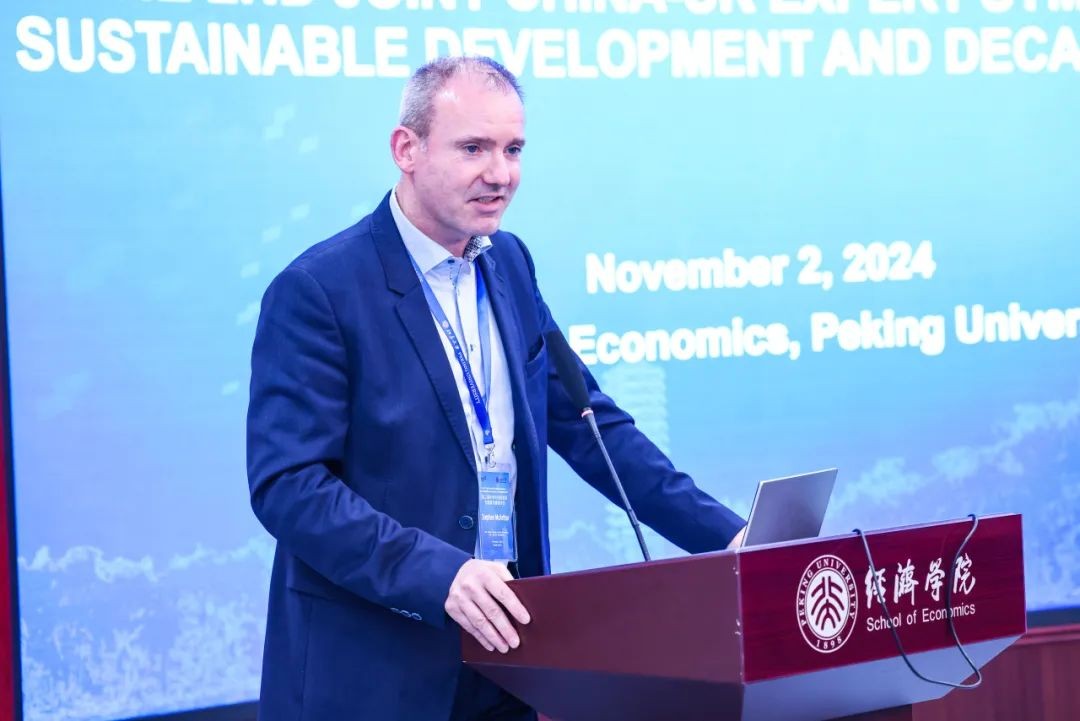
Stephen McArthur delivering speech
The symposium concluded with gratitude for the academic exchange and a shared commitment to strengthening China-UK collaboration on sustainability in the face of global challenges.
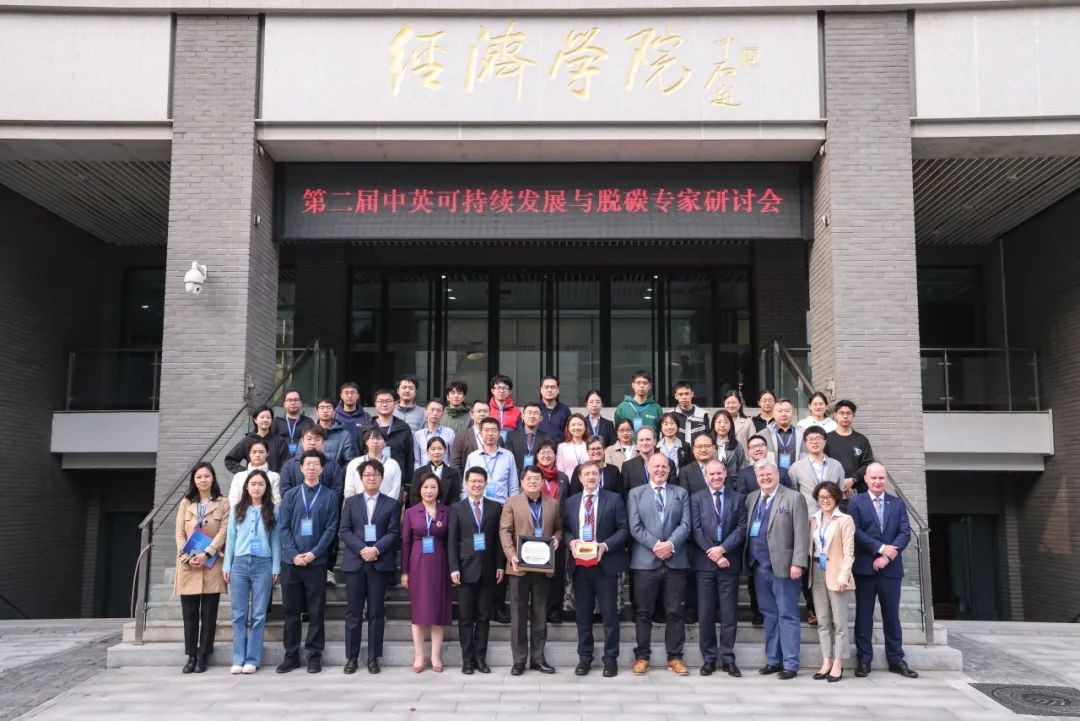
Group Photo